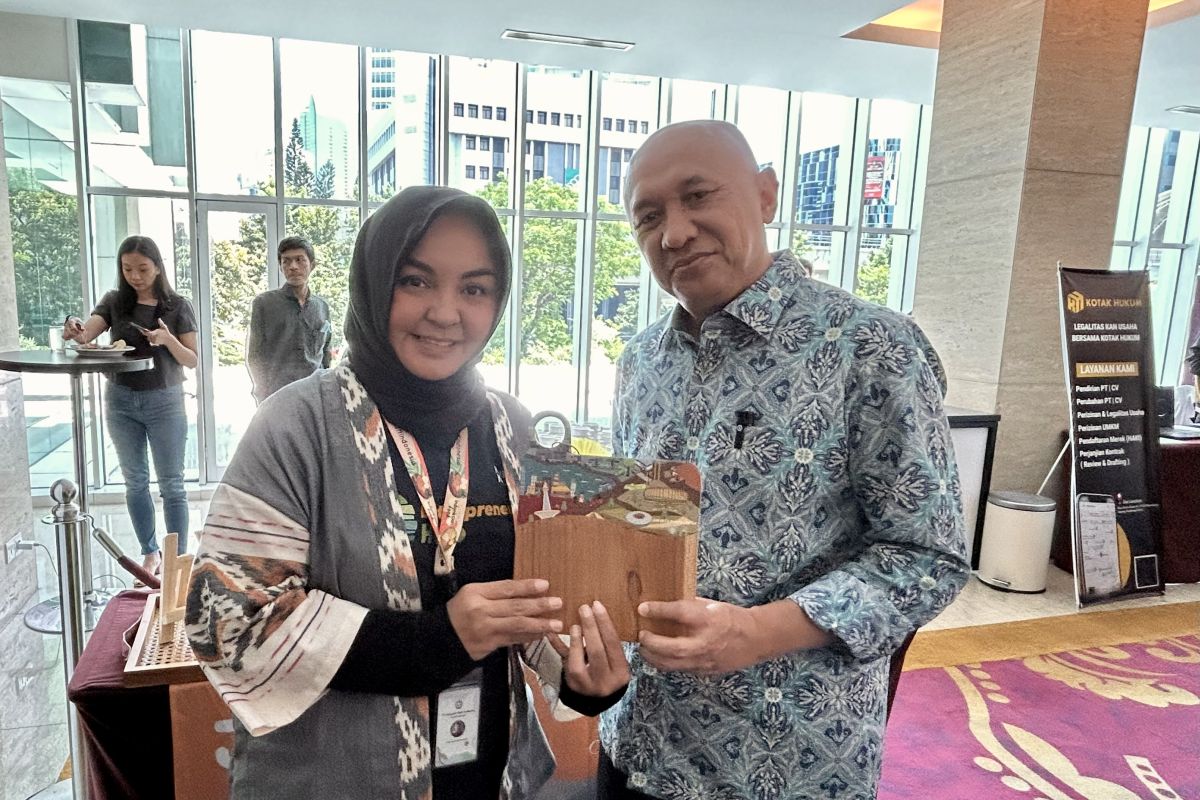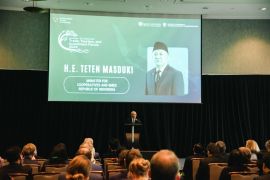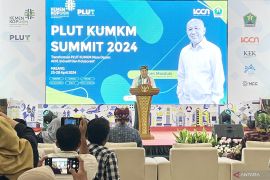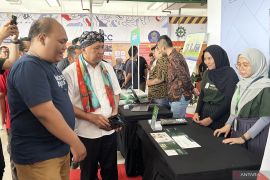“Currently, banks are still using the old-fashioned approach to (provide financing against) collateral, however, our SMEs do not have it. The banks should develop a more sophisticated approach," he said during the “Entrepreneur Hub Kick-Off” in Jakarta on Wednesday.
The banking industry must take advantage of digital technology to provide easy access for lenders and to ensure that SMEs can pay installments, he added.
“The financial technology industry (fintech) already uses the technology. They can provide loans amounting to Rp2 billion without collateral," Masduki informed.
He further said that financing is one of the government's focuses because the financing gap when it comes to conventional businesses and micro, small, and medium enterprises (MSMEs) is still wide.
MSMEs make up 99.9 percent of the total businesses in Indonesia and account for 97 percent of jobs in the country, however, bank credit for new MSMEs is only around 21 percent.
"We have to address this gap, one of which is by reducing the risk. If banks give loans to SMEs, that is very prone to bad credit. That is why the government is pursuing a mortgage-based ecosystem to reduce the finance gap," the minister said.
The government is continuously seeking to create an ecosystem to support the development of entrepreneurs, including through financing and increasing their capacity through the Entrepreneur Hub program, he added.
Currently, Indonesia is ranked 74th in the Global Entrepreneurship Index, which measures the effectiveness of the business ecosystem, human resource (HR) competence, ease of financing, technology, innovation, and business growth. The ratio of new entrepreneurs in Indonesia is 3.47 percent compared to the minimum standard of 4 percent in developed countries.
Indonesia's MSME export share is also relatively low at just 15.3 percent, while the average exports of ASEAN countries stand at 17.3 percent.
Meanwhile, national logistics costs are still relatively high at 23.5 percent and maritime logistics costs are projected to increase by 0.7 percent due to rising global inflation.
"Those are the challenges that we have to overcome because those sectors could help our MSMEs to escalate in terms of business scale, product quality, and service," the minister disclosed.
Related news: SMEs Ministry urges Indonesians to use local products
Related news: Ministry hosts program to promote entrepreneurship at varsity
Related news: Higher entrepreneurship prerequisite to become developed nation
Translator: Kuntum Khaira R, Resinta S
Editor: Azis Kurmala
Copyright © ANTARA 2023












